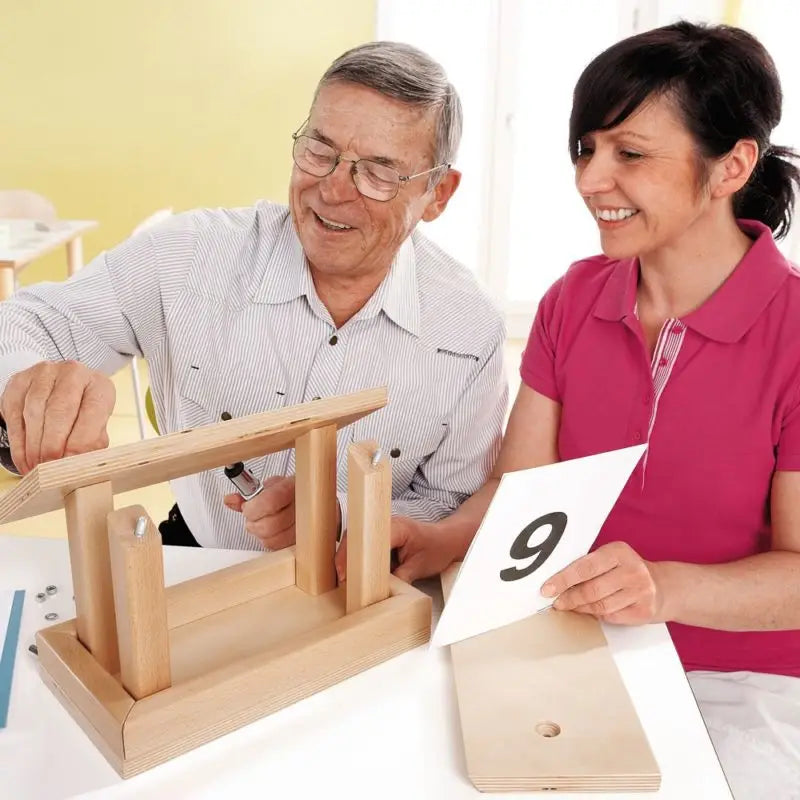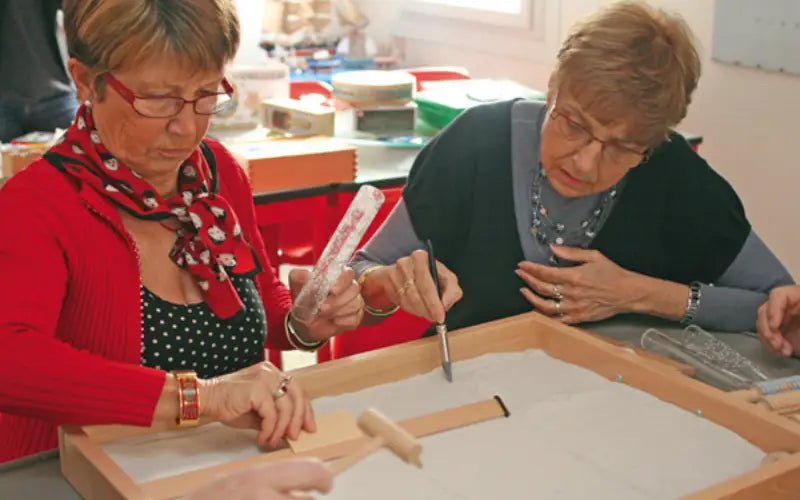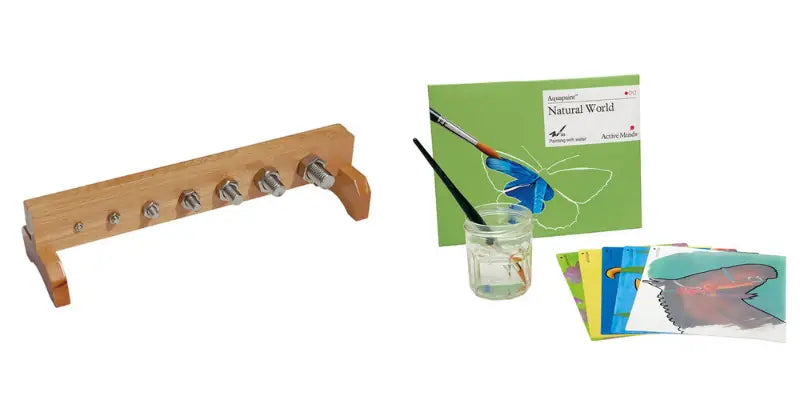People with Alzheimer's disease or related dementias need support rich in regular cognitive stimulation and continued social participation. Lack of activity often leads to apathy or anxiety and leads to behavioral problems in cascade. The objective of the adapted Montessori method is to offer activities adapted to the abilities and areas of interest of people with Alzheimer's. These activities will give the sick person a feeling of action: the famous “helping to do it alone” of the original method. The objective is to allow people to continue to live as long as possible in action and to absolutely get out of passivity while maintaining a social bond.
Basically, this method was created by Maria Montessori to educate children from working-class neighborhoods in Rome. It was later adapted by Professor Camp for use with older people with cognitive impairment.
A suitable environment
Montessori pedagogy focuses on the skills available and adapts the environment (e.g. adapted signage and materials) so that it makes sense to people without the need to use higher functions to understand it. The signage must help location in space, the recognition of objects, in particular to compensate for cognitive deficits due to the disease.
Stability is a key factor in the environment in order to avoid generating anxieties and to preserve autonomy in space.
The importance of routines
It is important to create routines and rituals, in particular by codifying each start and end of activity. Breaking down the activity into several steps makes it easier to understand and complete it.
The companion focuses on non-verbal, sensory and motor communication rather than only verbal communication: speak less, show and look more, make people feel and listen...
The method will also focus on not putting the elderly person in a situation of failure, because this negatively influences self-esteem and can generate anxiety, which then leads to behavioral problems (aggressiveness, etc.).
The importance of procedural memory
Adapted Montessori activities rely on the preserved skills and procedural memory of people with Alzheimer's disease. The entertainment offered is not limited to leisure activities. They also integrate the gestures and actions that we perform daily from sunrise to sunset. Thus, all acts of daily life are activities that can be offered to people who live in nursing homes: setting the table, folding the laundry, playing cards, watering the plants, etc.
Some suitable tools

The birdhouse construction game : The parts of this cabin can easily be put together and then taken apart. Ideal for preserving or awakening manual labor skills! This kit stimulates executive functions and action planning. Contents: 11 pieces in birch and beech, screws and nuts, 11 cards with step-by-step explanatory drawings.

Discovery bin : A baccalaureate to learn by experimenting! In free play, we make finger drawings, sift the sand or hide objects... During directed activity, we work on laterality, graphics... In wood with a Safety glass base. 2 sizes: small (36 x 26.8 cm, 400 gr of sand, 1 rake) and large (65.5 x 49.9 cm, 1 kg of sand, 3 rakes).

Screw and bolt assembly mini workbench : Use both hands to assemble the two parts of this workbench by screwing the 7 screws on the 7 bolts. Increasing sizes of screws and bolts. We like to feel the heavy metal of the pieces. An excellent support for training hand-eye coordination and finger agility for children, but also for adults! Toy of neutral aspect without childish connotation.
Aquapaint nature : 5 illustrated scenes on the theme of nature to reveal with a brush soaked in water. Contact with water will make the colors appear. Then these will fade gradually after a while. A painting material that puts no pressure on the user: it can exceed the lines, it does not matter! Reusable.


0 comments